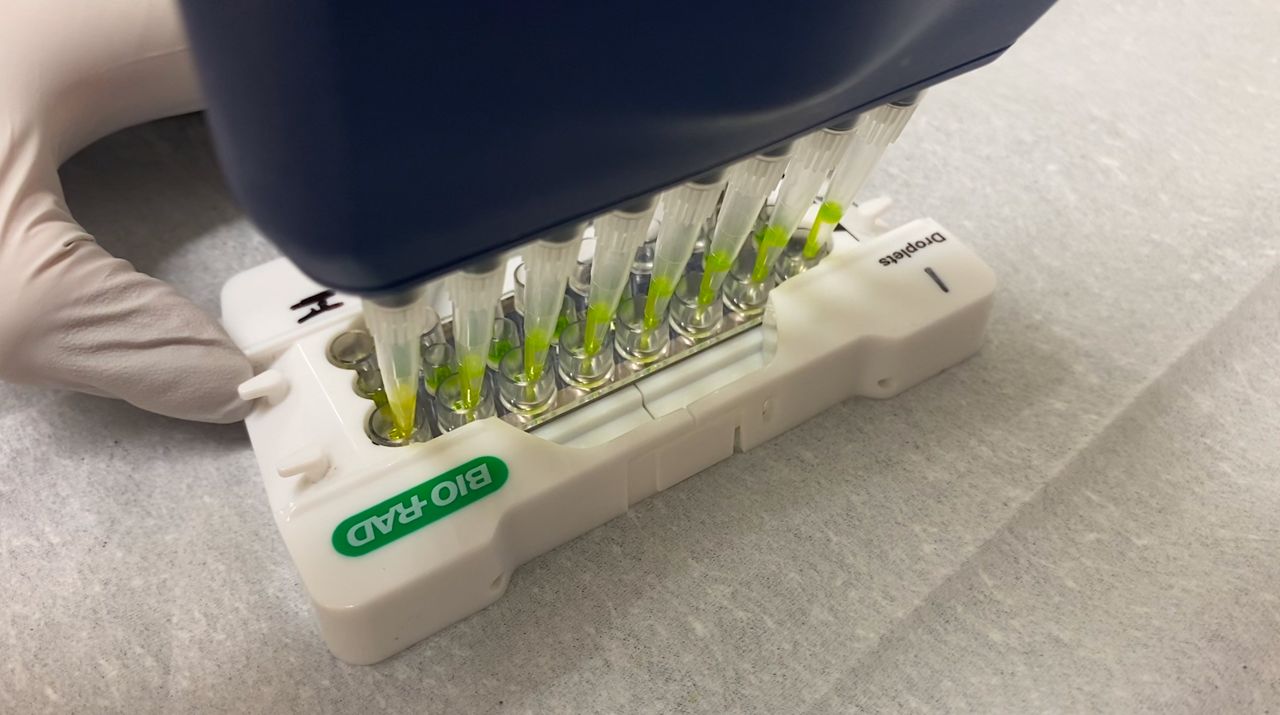MILWAUKEE — With the pandemic in the rearview mirror, wastewater has become one of the main tools in tracking COVID-19.
The University of Wisconsin-Milwaukee School of Freshwater Sciences is one of the entities in Wisconsin that continues to track the prevalence of COVID and other respiratory viruses in the community through its wastewater surveillance program.
Melissa Schussman is one of the research specialists that’s been a part of this effort. She takes wastewater samples that will be turned into droplets.
“The importance of the droplets is that they harbor each individual gene that we are trying to amplify,” said Schussman.
Her goal is to find out how many of those droplets have traces of COVID-19. She said through examining the wastewater, they are able to pinpoint how prevalent the virus is in the community.
Their wastewater surveillance program began at the height of the pandemic.
“It was crazy. It was a lot of long nights in hectic times, but it was very rewarding work,” said Schussman. “Now we are tracking just general covid, but we have tracked all of the variants during the omicron peak and the delta peak. We could look at those specific variants in the wastewater and we saw when they were increasing in the community.”
Sandra Mclellan is a professor at the UWM School of Freshwater Sciences. She said the school partnered with the University of Wisconsin State Laboratory of Hygiene and the Wisconsin Department of Health Services to become pioneers in this research.
This is why the Centers for Disease Control and Prevention recognized them as a National Center of Excellence for Wastewater Surveillance.

Mclellan said she believes this is a great way to show what they’ve learned.
“Now we have the tools and experience to look for these other respiratory viruses and that is great because it gives public health the heads up, for example, if we are having an early influenza season or if there is a spike in RSV, they can be looking for it in the pediatric population,” said Mcllelan.
Schussman said this research is now more important than ever since people are less likely to get tested clinically for COVID.
“When we produce results, people can look two days later online and see these are the levels in the community,” said Schussman. “They can use that to help them decide, oh do I really want to go to Summerfest this weekend, or should I stay in and do I want to see my grandfather next weekend, things like that.”
Schussman said she is proud to do this research to give back to the community that helped her establish her career.
To check out the results of the wastewater surveillance program, click here.



